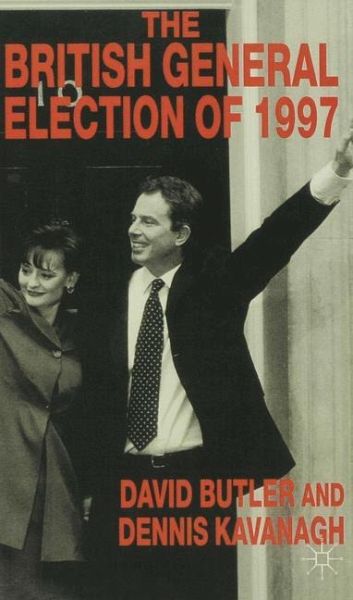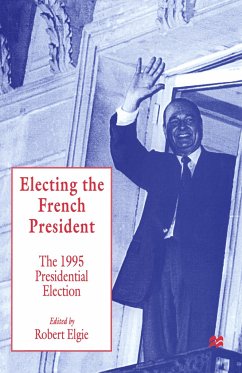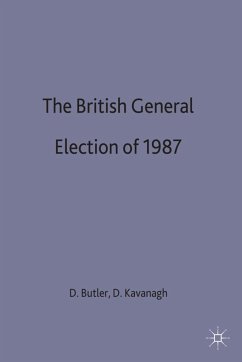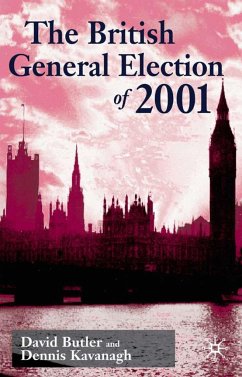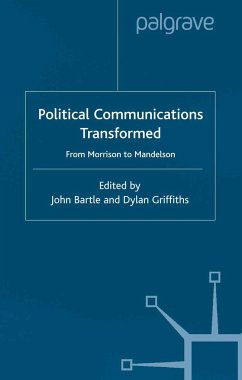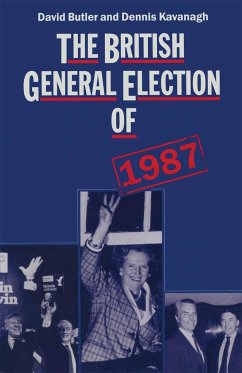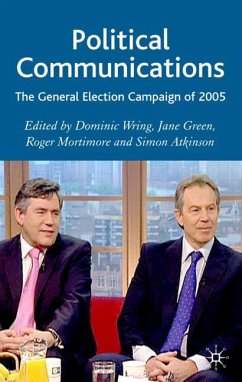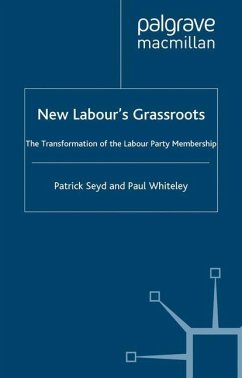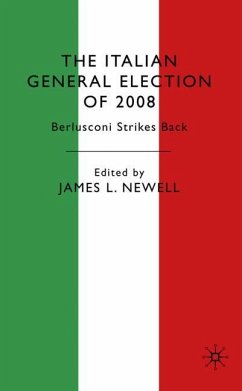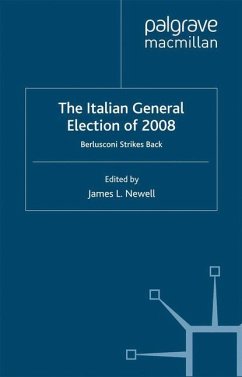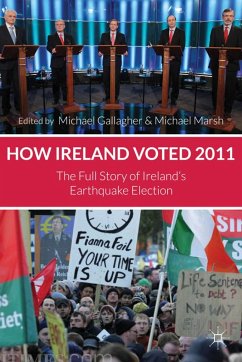'The British General Election of 1997, by David Butler and Denis Kavanagh, the latest contribution to one of the great oeuvres of British political science.' - Siôn Simon, Times Literary Supplement
'...By the late Fifties the Nuffield studies had become part of the election ritual and David Butler himself a national monument. Extraordinarily, he has now been doing this job for over fifty years...It is now evident that Butler's (and, since 1974, Dennis Kavanagh's work is irreplaceable: each volume includes things a political historian needs to know and can find nowhere else.' - London Review of Books
'Nuffield studies, which have come out every election since 1945 and are treated by political scientists as near-definitive.'
- Guardian
'Every election, however predictable its outcome, is a sacred moment when politicians briefly return power to the people. A healthy democracy requires that such moments are not only honoured at the time but properly chronicled and remembered...the combination of computer technology, modern communication systems and the applications of the latest advertising techniques surely justifies the author's description of the 1997 compaign as the most innovative since 1959...the book's biggest immediate benefit is that it dispels some of the myths that have tended to envelop the election. Despite claims to the contrary, the decision of traditionally Tory newspapers to back Labour had little or no effect on the number ofseats each party won; nor did the intervention of Sir James Goldsmith's Referendum Party; nor did the fall in turnout...The Nuffield series is one that, were it not to exist, would definitely need to be invented.' - Peter Kellner, Times Literary Supplement
'...as David Butler and Dennis Kavanagh relate, the [1997] election turned out to be as fascinating as any of its predecessors...Yet even so clear-cut contest throws up some paradoxes...British elections are, great begetters of myths and half-baked speculation...The Nuffield election studies, of which this is the fifteenth, were set up in 1945 in order that such dangerous simplifications should be strangled at birth, or at least in their infancy. Published within a few months of the election, they combine the immediacy of insider journalism with the dispassionate and scholarly analysis expected of academics. Like its predecessors, the 1997 volume is first and foremost an authoritative 'Political Wisden' of the campaign and result. But it is also full of the insights that come from years of observation and the wealth of unattributable comment that the authors, with their unmatched access to politicians and their advisers, are well placed to acquire.' - Nick Owen, Oxford Magazine
'This book oozes authority - and it has to, since 1997 was an election to conjure with. All sorts of records were broken...If you want to know the facts of the election, this is the book for you. Butler and Kavanagh's experienceand their access to key figures in all the parties also give them a unique inside track on the election. Their opinions count, as well as the facts that they report.' - Alan Leaman, Liberal Democrat News
'Indispensable.' - David McKie, Guardian
'The Nuffield general election books, are almost part of the British constitution, though much more solid and authoritative. They have become such familiar and comfortable pieces of scholarly furniture that we take the quality and prompt delivery too easily for granted, understanding the durable design and the consistent craftsmanship.' - Ivor Crewe, New Statesman
'For Labour readers, The British General Election of 1997 will be a joy on every page...the authors trace in all its glory Labour's path to power...For Conservative readers, however, every chapter of the book is an exquisite torture. Tory deficiencies, errors and failures are
